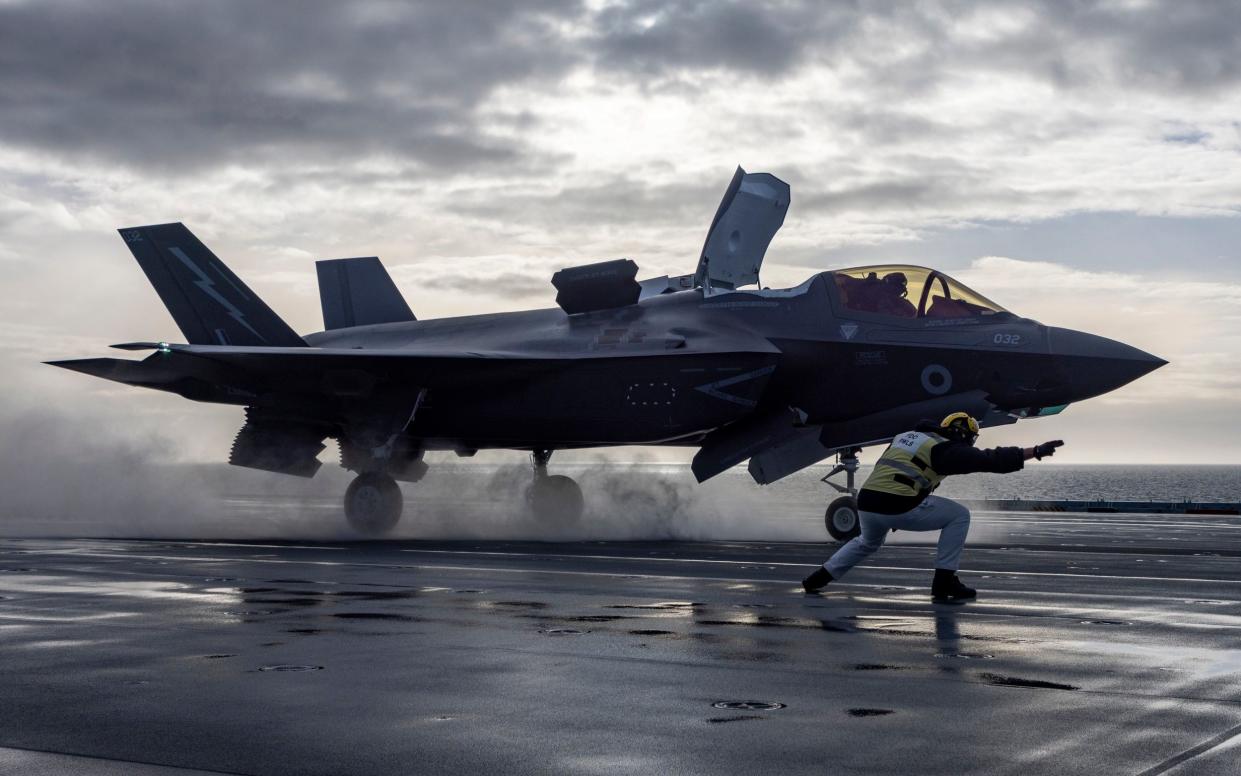Britain’s crumbling armed forces may soon be utterly outmatched

- Oops!Something went wrong.Please try again later.
The defence of these islands has not been so clearly in the spotlight since the end of the Cold War. As the conflict in Ukraine and the spiralling situation in the Middle East have shown us, if we continue to get defence wrong, everything else worrying the electorate could become suddenly, horrifically irrelevant.
Over the past 20 years, our military has become adept at fighting terrorists at the expense of being prepared for a state-on-state conflict. It is time for a programme of massive investment in our armed forces to ensure that we can do both.
The more dangerous world we find ourselves in would be sufficient to justify this on its own. But, as we’ve seen in the fields of Ukraine, the nature of warfare is changing at a frightening pace. This shouldn’t surprise us; it’s what happens in high-intensity conflicts. But it means that we need to keep up with the pace, and so far there are few indications Whitehall and Westminster are willing to do so.
Sir Keir Starmer’s pledge on defence was nearly a complete damp squib. He has almost completely mirrored the Tory stance, essentially taking defence out of the election debate. However, Sir Keir has committed to a Strategic Defence Review, and this might be the most valuable decision he has or will make on defence.
The last such review took place before the invasion of Ukraine and on the back of 20-plus years of counter- insurgency warfare. The focus seemed to be on tech, the South China Sea and a few expensive ships and airframes rather than the actual capabilities required to fight and win in the early reaches of the 21st century. Smart academics, wily politicians and “single service”-centric military chiefs seemed to have carried out the review.
The “refresh” of the integrated review last year did not much improve matters. What should be in sharp focus now is Russia and more particularly Vladimir Putin as the threat we must face down.
What on earth have we been doing as he has built up his strength? Moscow’s forces can boast of over one million personnel, thousands of tanks, tens of thousands of drones. And the whole time, Putin has made it quite clear that he intended to use this strength to claim land he sees as rightfully Russian.
Britain, meanwhile, has been busily cutting its army down. We now have under 80,000 full-time soldiers, and are struggling to recruit more. We have bought two massive aircraft carriers, one of which doesn’t seem to work, which we don’t appear to have enough jets for. When we do need an aircraft carrier in the Middle East, we use Cyprus. It’s a sorry state of affairs.
Chilling, too, is the thought that our strategies and plans will not survive contact with modern drone-based tactics and strategies.
The good news is that our scientists are still up on the pace. The new DragonFire system, a laser weapon which can shoot down drones at £10 a pop, is a clear recognition of the new world we find ourselves in. It won’t be in use, however, until 2027.
This must be sped up. It is now the hitherto unglamorous air defence systems that are masters of the battlefield, rather than the fighter pilots and tank commanders of my era. Ukraine has shown the devastating effect that small, cheap and massed drones can have on traditional forces. Our force structure, regrettably, is based on fewer, more expensive pieces of kit – creating a potentially heavy imbalance in favour of our enemies.
With Moscow’s hordes once again marching westwards, we urgently need to review and invest in our defence to meet this threat, rather than an imaginary battle in space or in the South China Sea. And we must get our new tech to the front lines when it is “good enough”, rather than waiting for it to be perfect – and redundant.
Colonel Hamish de Bretton-Gordon is former commanding officer of the 1st Royal Tank Regiment.

